
B2B Articles - October 28, 2016
Marketers understand the value of focusing on specific campaign goals. A microsite represents one more way to do this effectively. For many brands, their primary website represents a political hurdle where frequent updates, marketing experiments and timely updates present a challenge for implementation and approval.
Consider these six benefits of microsites when planning a next digital marketing and lead generation strategy.

Microsites are small websites that are hyper-focused on a specific goal, campaign, or event. They operate as independent websites (sometimes on a temporary basis). However, the microsite remains distinctly connected to the parent site.
A microsite can be used in many ways, including:
A microsite typically lives on its own domain, but may also exist as a subdomain. Here's a structural example of the domain configurations:
Primary domain: MyBrand.com
Microsite domain examples:
There are many advantages to employ microsites. Here are just 6 primary ones.
A microsite is only a few webpages of useful information and interesting content. As a result, this is an inexpensive way to have marketing impact. A microsite focused on a singular, distilled goal, can easily align CTA to performance goal, making it easier to judge ROI. Microsites, if successful, can grow into a more robust offering, which can allow brands to harness the lower cost model to drive more ROI with marketing efforts. Microsites allow marketing teams, not accostomed to a continous improvement design model, to work faster, cheaper and more efficiently. Lessons learned from microsite campaigns can be adopted by the larger enterprise.
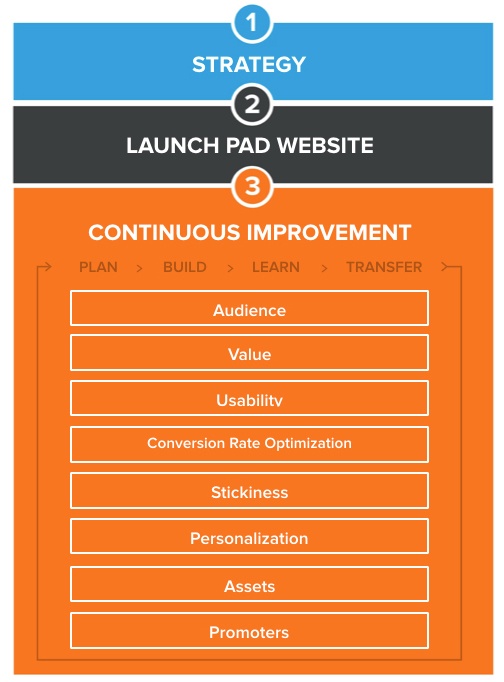
Microsite projects have the opportunity of rapid implementation and quick, successive launches. With a clear focus and concise information, a microsite can be deployed quickly, allowing the marketing team to achieve goals and generate measurable results. Since the website design can be based loosely the main brand, design decisions too can be made more efficiently.
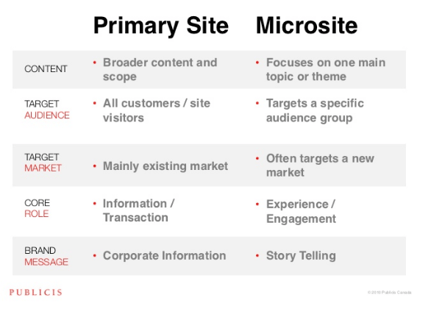
Employing a microsite will likely boost your brand’s overall SEO ranking and allow new audiences to find the business online. Visitors unfamiliar with your organization may find the microsite through organic search, referral links, and social media. Including a logo and linking back to the parent website invites visitors to learn more.
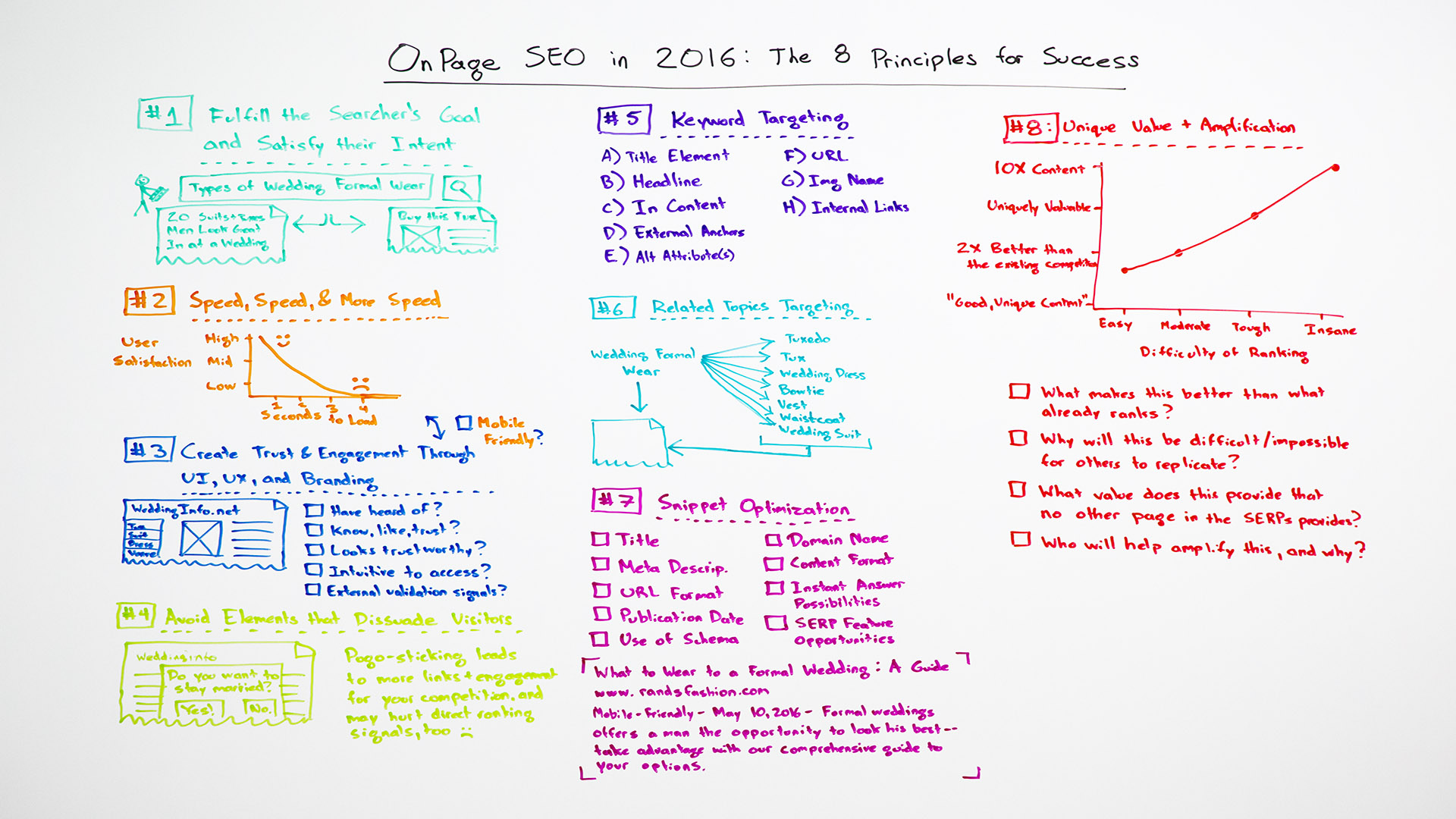
MOZ Whiteboard - On-Page SEO in 2016
Bold, bright microsites employ user-friendly design and navigation. A microsite represents a streamlined opportunity for the user to easily find the information they need. Make sure the microsite’s navigation is intuitive and highlight a clear path of action. The microsite’s fewer distractions can improve conversions and greater customer experience.
Moving content related to specific products, services or offerings to individualized microsites helps keep a homepage clear of clutter. This helps the audience to connect more easily and engage more efficiently with the information that matters most to them.
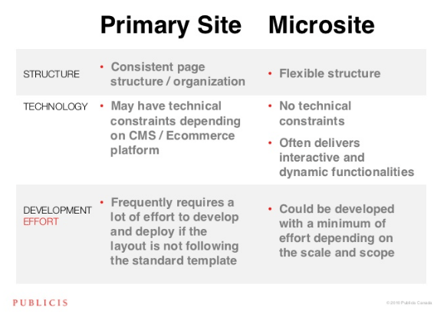
Since microsites can be deployed quickly and cost-effectively, they represent a way to test various campaign messages. The marketer can use the few pages of focused content to clearly measure target market engagement. Also microsites can provide marketing teams freedom to experiment without the cumbersome restrictions that may exist in the primary website. By giving the marketing team this freedom to run agile/LEAN slide line campaigns, the enterprise may uncover new best practices and generate more sales opportunities, allowing them to compete with disruptive market forces and upstart companies.
Microsites can grow over time, using a Growth Driven Design process, to become powerful lead and sales generation assets for brands. Rapid implementation and data-driven learning can also benefit the primary site with increased search ranking and increased brand awareness.
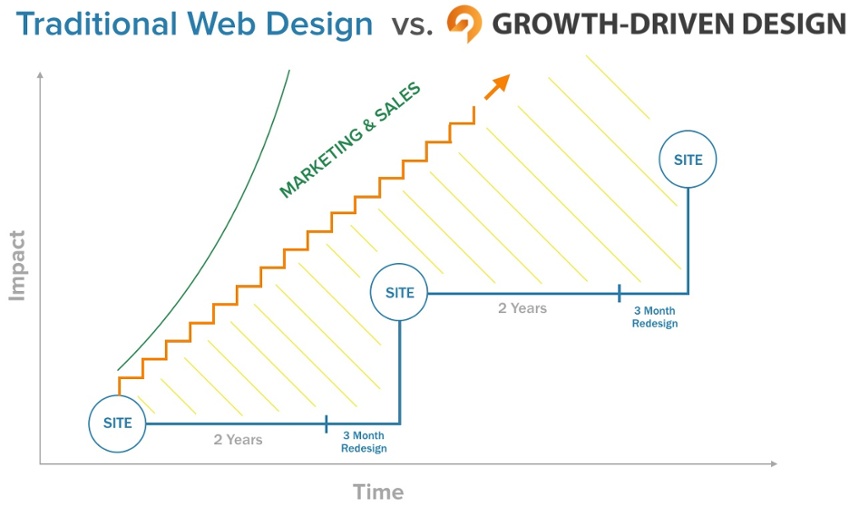
Related reading: Best Practices for Designing Event Microsites
Overall, even in developing a microsite, the rules of inbound marketing still apply. Focus on key buyer personas to effectively target microsites. Keep content focused on that audience’s pain points and challenges instead of touting the brand. Live up to your company’s promise to customers to deliver engaging, informative and delightful content.
Benefits of microsites sources:
Kogan, D. (n.d.). Top Ten Benefits of Having a Microsite. https://www.intechnic.com/blog/top-ten-benefits-of-having-a-microsite/
Pullizi, J. (2010, Dec. 31). How to Develop a Microsite: 5 Examples to Get You Started. https://contentmarketinginstitute.com/2010/12/microsite-samples/
Yim, J. (n.d.). Microsite User Experience Design. https://www.slideshare.net/ybread/microsite-user-experience-design
Tel 212-993-7809
Ironpaper ®
10 East 33rd Street
6th Floor
New York, NY 10016
Map
First-party data marketing
SEO for B2B
Customer journey strategy
ABM Agency
Marketing for IoT Companies
HubSpot Implementation
B2B Product Marketing
Measurable Marketing
IoT go-to-market strategy
IT Marketing
HubSpot for ABM
Go to market strategy
Technology Marketing
Marketing for IT Companies
ABM Campaigns
B2B lead generation
B2B Marketing and Growth Agency.
Grow your B2B business boldly. Ironpaper is a B2B marketing agency. We build growth engines for marketing and sales success. We power demand generation campaigns, ABM programs, create B2B content, strengthen sales enablement, generate qualified leads, and improve B2B marketing efforts.